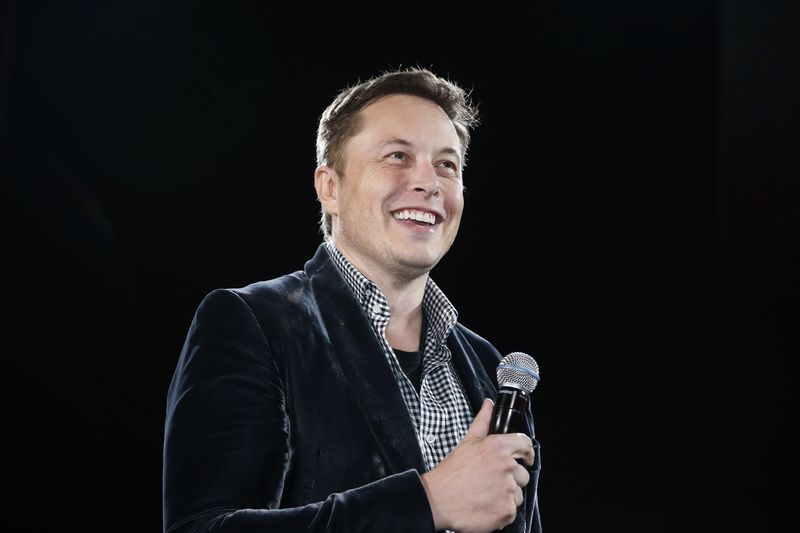By Noel Randewich
SAN FRANCISCO (Reuters) - A leveraged buyout of electric carmaker Tesla (NASDAQ:TSLA) could be an ominous sign of market exuberance, but investors may need more justification to run for the exits.
CEO Elon Musk's suggestion on Tuesday that he wanted to take Tesla private at $420 a share, putting a value of $72 billion on the carmaker, had some investors wondering whether getting such a huge deal completed would signal that Wall Street has become overheated after nearly a decade of gains following the 2008 financial crisis.
"A mega-LBO of a company notorious for its cash burn rate would be the clear sign that this is the ultimate market top," Mike O’Rourke, Chief Market Strategist at JonesTrading, wrote in a client note. "This is the type of behavior often witnessed at market extremes."
Still, others took the opposite view, seeing Tesla as an exception to the rule. The company draws both love and hate on Wall Street, being simultaneously favored by institutional investors like Fidelity and also the most heavily shorted major stock on the market.
"I don't think that the Tesla news tells us much of anything about the broader market," said Robert Phipps, a director at Per Stirling Capital Management in Austin, Texas. "Instead, it is just a reflection of Elon Musk's personality and how much he hates being accountable to shareholders and short-term measures of success."
Indeed, a deal is far from done and may never materialize. Pointing to the rate at which Tesla is burning through cash, growing competition from other electric carmakers, and its difficulty hitting production targets, analysts and investors were skeptical that lenders would be willing to finance what would likely be the largest leveraged buyout in U.S. history.
In addition, leveraged buyouts usually depend on growing earnings to determine how much debt can be serviced to complete the buyout, but Tesla has never yet produced an annual profit, so dealmakers said any buyout transaction for Tesla could probably not involve placing much more debt on the company.
Tesla lost nearly $2 billion last year as it struggled to ramp up production of its Model 3 sedan, and while Musk said last week that the company would become consistently profitable starting in the September quarter, he has failed to reach many targets in the past.
VALUE EXPLOSION
Compared with its peers, Tesla's valuation has had a runaway ride. At $63 billion, Tesla's stock market value is already larger than General Motors (NYSE:GM), at $53 billion.
Reflecting shareholders' expectations that Tesla will grow its production exponentially, its market capitalization is equivalent to about $626,000 for every car it sold last year, compared to GM's valuation of about $5,500 per car it sold.
If Musk's deal were to be done, it would be larger than the $44 billion buyout of TXU Corp in 2007, which was the largest ever, and would even top it in inflation-adjusted terms of $55 billion.
Musk's $420 per share deal would also top the 1988 $30 billion leveraged buyout of RJR Nabisco, now seen by many as the high-water mark of excess on Wall Street during that decade. Inflation adjusted, it would be $63 billion.
His per share price would represent a 23 percent premium over the previous day's close, although that is not that rich compared with some recent deal premiums.
A Tesla buyout at current valuations may be an ominous signal that investors are finding it difficult to find earnings growth after nearly a decade of economic recovery. Merger and acquisition activity on a quarterly basis hit multi-year peaks in 2000 and in 2007, just before significant stock market declines.
Global leveraged buyouts reached $154 billion in the first seven months of 2018, up 15 percent from the same period last year but still below the $464 billion in the first seven months of 2007, according to Thomson Reuters Deals Intelligence.
"If you look at past market cycles and you look at crescendos in M&A activity or LBO activity or IPO activity ... those things tended to crest within 12 months of a market top," said Walter Todd, chief investment officer at Greenwood Capital Associates in Greenwood, South Carolina.
"Whether this is that point in time, we won't know until we get past it but it's definitely a consideration in terms of the market psychology.”
